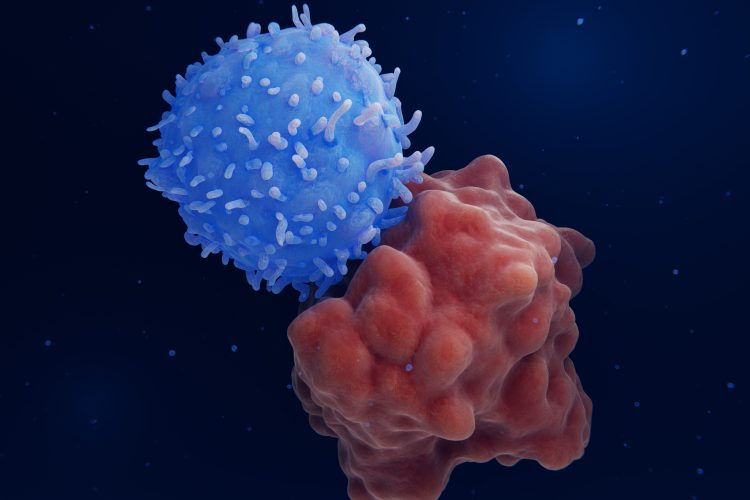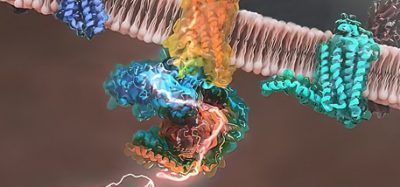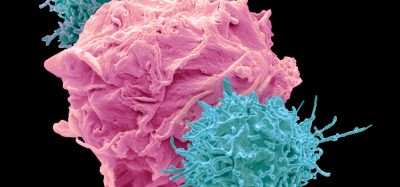Key epitope can trigger tumour cell death
Posted: 24 October 2023 | Drug Target Review | No comments yet
An epitope on CD95 receptor causes tumour cells to self-destruct and may prolong benefits of CAR T-cell therapy for solid tumours.

Researchers from the UC Davis Comprehensive Cancer Center found a key epitope, a protein section that can activate the larger protein, on the CD95 receptor that can cause cells to die. This novel ability to initiate programmed cell death could lead to improved cancer treatments.
CD95 receptors, also known as Fas, are death receptors. They reside on cell membranes and release a signal causing cells to self-destruct when activated. Also, modulating Fas may prolong the benefits of chimeric antigen receptor (CAR) T-cell therapy for solid tumours.
Dr Jogender Tushir-Singh, Associate Professor in the Department of Medical Microbiology and Immunology and senior author of the study said: “We have found the most critical epitope for cytotoxic Fas signalling, as well as CAR T-cell bystander anti-tumour function.” He continued: “Previous efforts to target this receptor have been unsuccessful. But now that we’ve identified this epitope, there could be a therapeutic path forward to target Fas in tumours.”
Better cancer therapies
Typically, cancer is managed by surgery, chemotherapy and radiotherapy. These treatments can work primarily, but therapy-resistant cancers may often return. Immunotherapies, like CAR T-cell-based immune therapies, where patient T cells are engineered by joining them with a specific tumour-targeting antibody to attack tumours, and immune checkpoint receptor molecule activating antibodies, have great promise to break this cycle. Engineered T cells have shown efficacy in leukaemia and other blood cancers. However, these therapies only help a tiny number of patients, especially in solid tumours like ovarian, triple-negative breast cancer, pancreas, and lung, as tumour microenvironments keep T cells and other immune cells at bay.
Tushir-Singh explained: “These are often called cold tumours because immune cells simply cannot penetrate the microenvironments to provide a therapeutic effect.” He added: “It doesn’t matter how well we engineer the immune receptor activating antibodies and T cells if they cannot get close to the tumour cells. Hence, we need to create spaces so T cells can infiltrate.”
Death receptors, when targeted, trigger programmed cell death of tumour cells. They offer a workaround that could simultaneously kill tumour cells and lead to more effective immunotherapies and CAR T-cell therapy.
Although drug companies have had some success targeting the Death Receptor-5, no Fas agonists have made it into clinical trials, but these findings may change that.
The correct target
Fas plays a crucial role in regulating immune cells, but Tushir-Singh and his colleagues knew they could target cancer cells selectively if the correct epitope was identified. Finding this specific epitope means that he and other researchers can now design a new class of antibodies to selectively bind to and activate Fas to potentially destroy tumour cells specifically.
Fas signalling is essential to CAR T success, shown through other research in animal models and human clinical trials, especially in tumours that are genetically heterogeneous. Genetically heterogeneous tumours have a variety of different cell types, which may respond differently to treatment.
A Fas agonist could generate a CAR T bystander effect, in which the treatment destroys cancer cells that lack the molecule the tumour-targeting antibody is designed to hit. Therefore, activating Fas could both destroy cancer cells and improve CAR T efficacy.
The study demonstrated that tumours with a mutated version of the epitope of Fas receptors will not respond to CAR T at all. This finding may lead to new tests to find which patients will benefit most from CAR T-cell immunotherapy.
“We should know a patient’s Fas status — particularly the mutations around the discovered epitope — before even considering giving them CAR T,” Tushir-Singh said. “This is a definitive marker for bystander treatment efficacy of CAR T therapy. But most importantly, this sets the stage to develop antibodies that activate Fas, selectively kill tumour cells, and potentially support CAR T-cell therapy in solid tumours.”
The findings were published in Cell Death & Differentiation.
Related topics
Cancer research, Chimeric Antigen Receptors (CARs), Drug Discovery, Immunotherapy
Related conditions
Cancer
Related organisations
UC Davis Comprehensive Cancer Center







